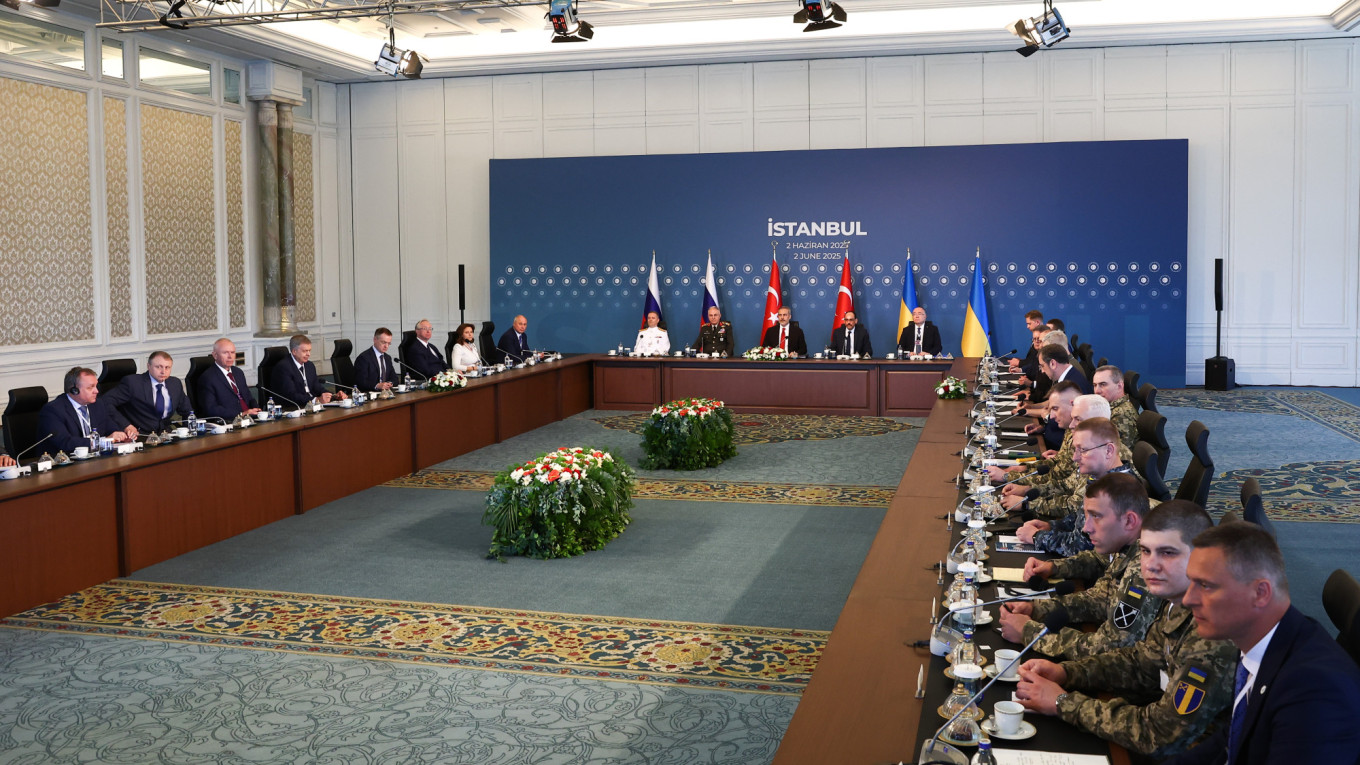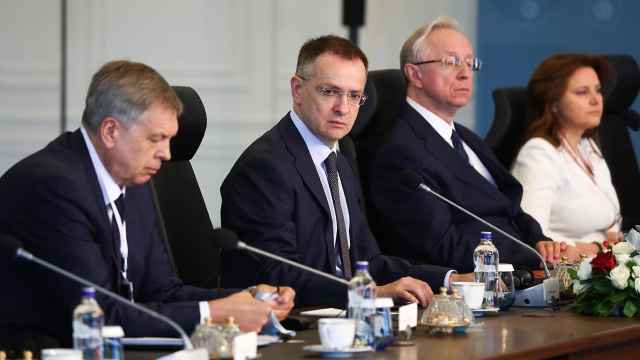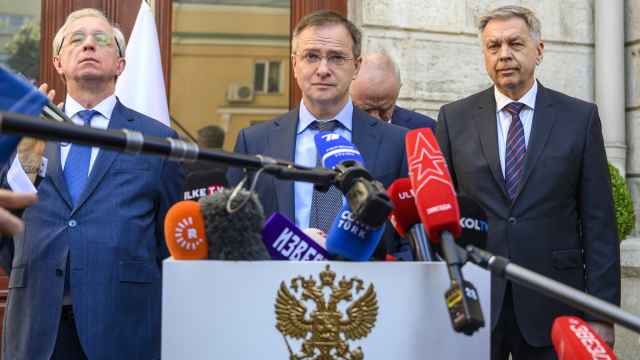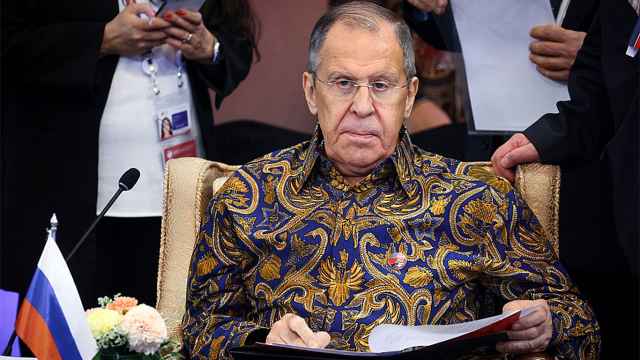Russia and Ukraine agreed to a new prisoner exchange after their delegates met for a second round of renewed peace talks in Istanbul on Monday, but there was no sign the warring sides were any closer to reaching a ceasefire deal than they were when direct negotiations were restarted a month ago.
The talks lasted slightly more than an hour and touched on each country’s respective ideas for what a full ceasefire and a longer-term path to peace should look like amid stark disagreements and pressure from U.S. President Donald Trump, who has warned that Washington could abandon its role as a mediator if there is no progress.
Following the meeting, chief Ukrainian negotiator Defense Minister Rustem Umerov told reporters that his team gave Russian delegates a list of children Ukraine says were forcibly moved to Russia and who it wants returned. He also said the delegations agreed to a new prisoner swap, as well as to exchange 6,000 bodies of killed soldiers each.
Umerov, who said key issues in the ongoing peace talks “can be resolved only at the level of leaders,” added that Ukraine proposed holding a third meeting later in June. “This is extremely important for making progress in the negotiation process,” he was quoted as saying by Ukrainian state media.
The head of Russia’s delegation, Kremlin aide and former Culture Minister Vladimir Medinsky, later confirmed that the two sides agreed to a new exchange of prisoners of war. He said Russia and Ukraine would form a regular medical commission that would create a list of prisoners to release, prioritizing those who are seriously injured.
However, Medinsky disputed Ukrainian claims that Russia was involved in the abduction of children, accusing Kyiv of trying to “make a show” out of the issue. According to him, the topic of children formed a “central part” of Monday’s discussions.
Medinsky also said that Russia proposed a ceasefire along “certain parts of the front line” that would last between two and three days, suggesting the pause in fighting would allow the sides to recover the bodies of killed soldiers.
He added that Ukrainian delegates received Moscow’s proposals for a long-term settlement to the war, but he summarized the talks by saying: “Unfortunately, something didn’t work out so well.”
Later Monday, a copy of the Russian memorandum handed to Kyiv’s negotiators published by Russian state news agencies said that Moscow will only agree to a full ceasefire if Ukrainian troops withdraw from the four regions that Russia partially occupies.
The two sides last met in Istanbul on May 16, when they agreed to exchange 1,000 prisoners each. However, those talks failed to produce a broader ceasefire agreement, let alone a roadmap to end the war, which has been a priority for Trump since he took office in January.
During that first round of talks, Russian negotiators reportedly demanded that Ukraine withdraw its troops from four partially occupied regions in eastern Ukraine. According to The Economist, Moscow also threatened to capture the Kharkiv and Sumy regions.
Since then, Ukrainian officials say around 50,000 Russian troops have massed near Sumy in preparation for a possible offensive. President Vladimir Putin and other Russian officials have hinted that further territorial ambitions remain on the table.
Monday’s talks came just a day after Ukraine launched stunning coordinated drone attacks on airbases across Russia and as nightly airstrikes continued on both sides. Kyiv claimed that it destroyed dozens of strategic bombers in the operation, dubbed “Spider’s Web.”
Zelensky confirmed his delegation would travel to Istanbul only after the operation, a major embarrassment for Moscow, was completed.
Heading into the second round, Russia’s demands for an end to the war remained the central question. After the May talks, both sides agreed to draft separate proposals, or “memoranda,” outlining conditions to end the war.
U.S. officials and Russian negotiator Medinsky had both confirmed receiving Ukraine’s memorandum ahead of the meeting. Russia did not immediately make its proposals public and had said it would deliver them only in person during Monday’s meeting.
Trump’s Ukraine envoy Keith Kellogg had said British, German and French security advisors were also expected in Istanbul for the second round of talks. According to Kellogg, the next stage will focus on merging the two memoranda into a single document that could serve as the basis for ending the war.
Later on Monday, the White House said Trump is “open” to meeting his Russian and Ukrainian counterparts in Turkey.
Reuters contributed reporting.
A Message from The Moscow Times:
Dear readers,
We are facing unprecedented challenges. Russia's Prosecutor General's Office has designated The Moscow Times as an "undesirable" organization, criminalizing our work and putting our staff at risk of prosecution. This follows our earlier unjust labeling as a "foreign agent."
These actions are direct attempts to silence independent journalism in Russia. The authorities claim our work "discredits the decisions of the Russian leadership." We see things differently: we strive to provide accurate, unbiased reporting on Russia.
We, the journalists of The Moscow Times, refuse to be silenced. But to continue our work, we need your help.
Your support, no matter how small, makes a world of difference. If you can, please support us monthly starting from just $2. It's quick to set up, and every contribution makes a significant impact.
By supporting The Moscow Times, you're defending open, independent journalism in the face of repression. Thank you for standing with us.
Remind me later.






